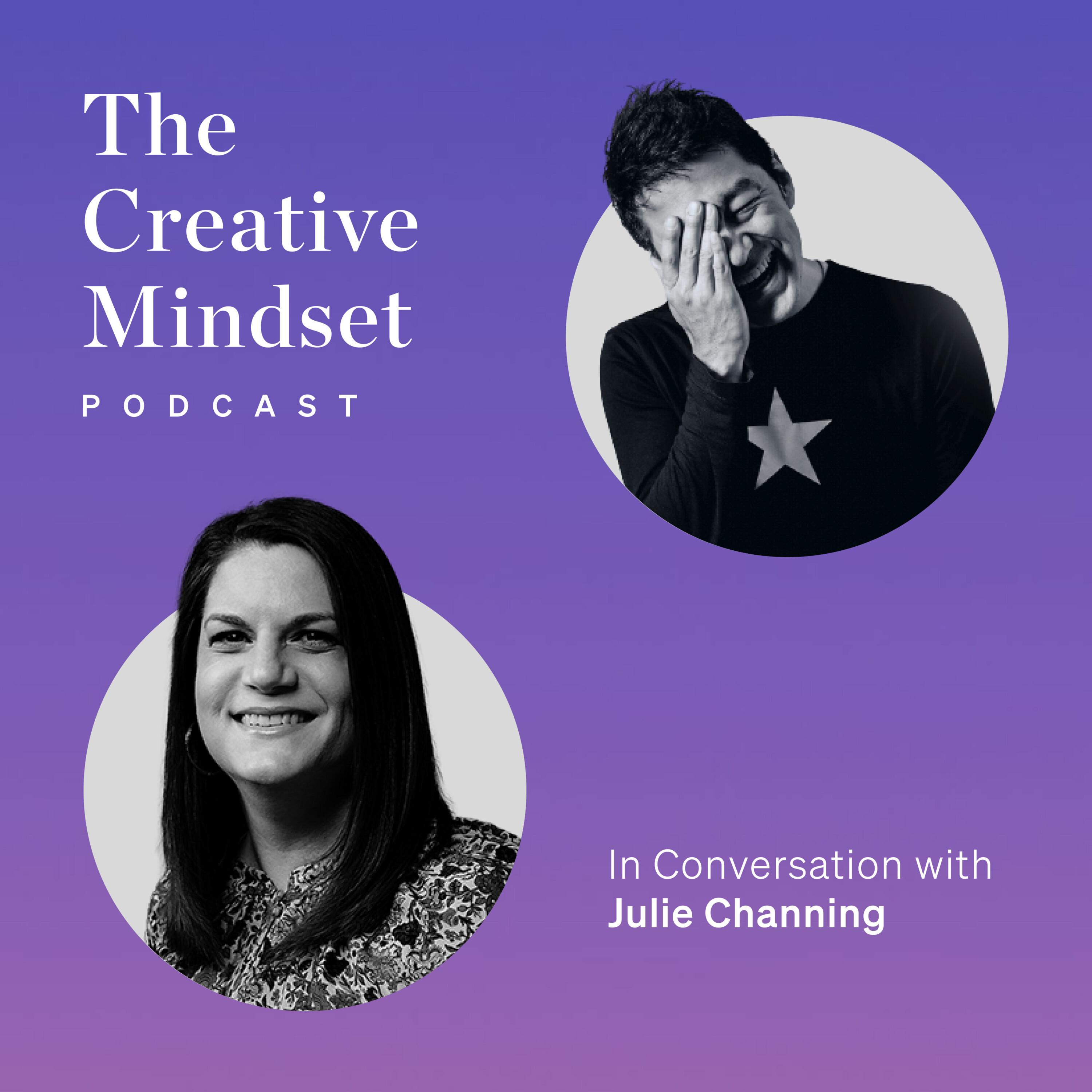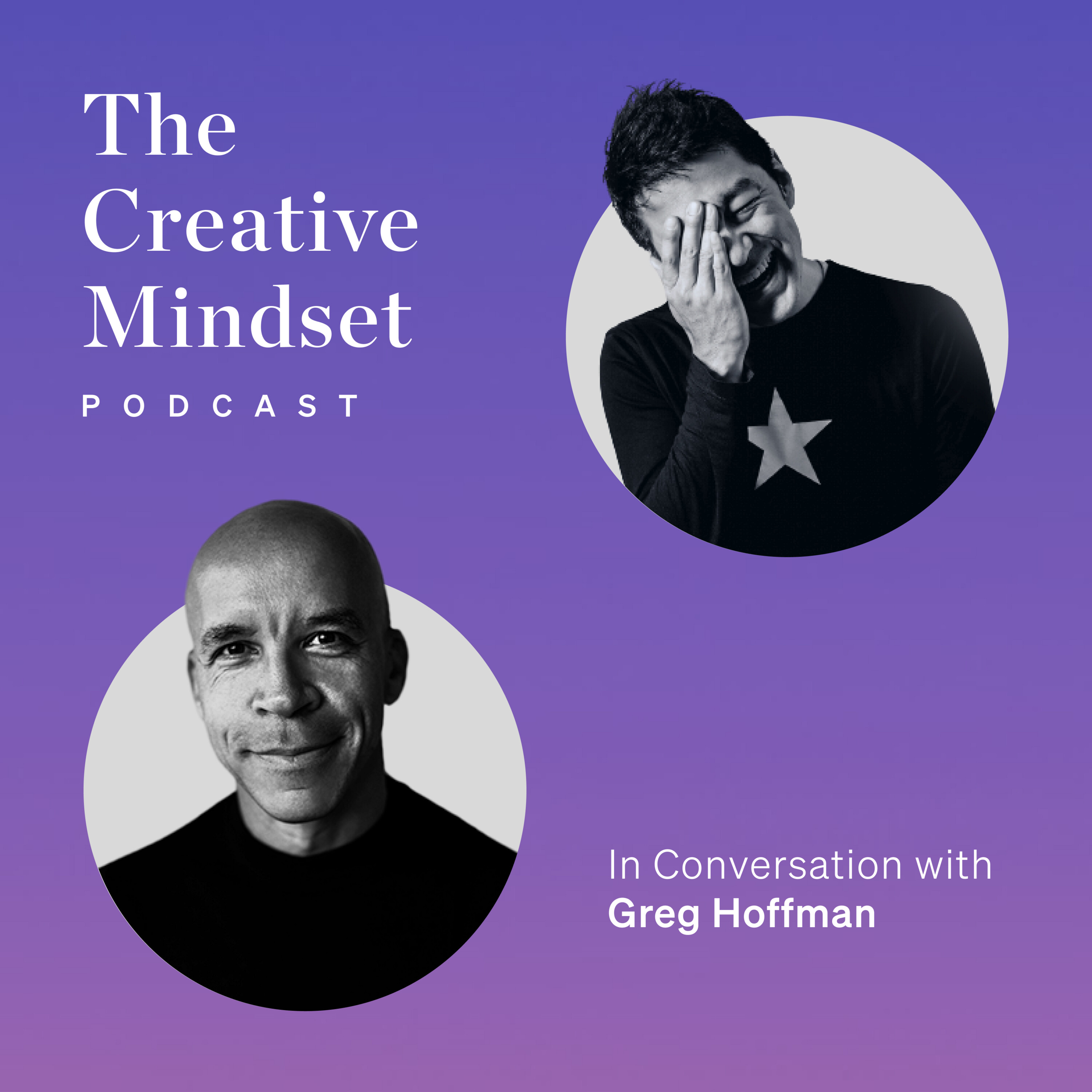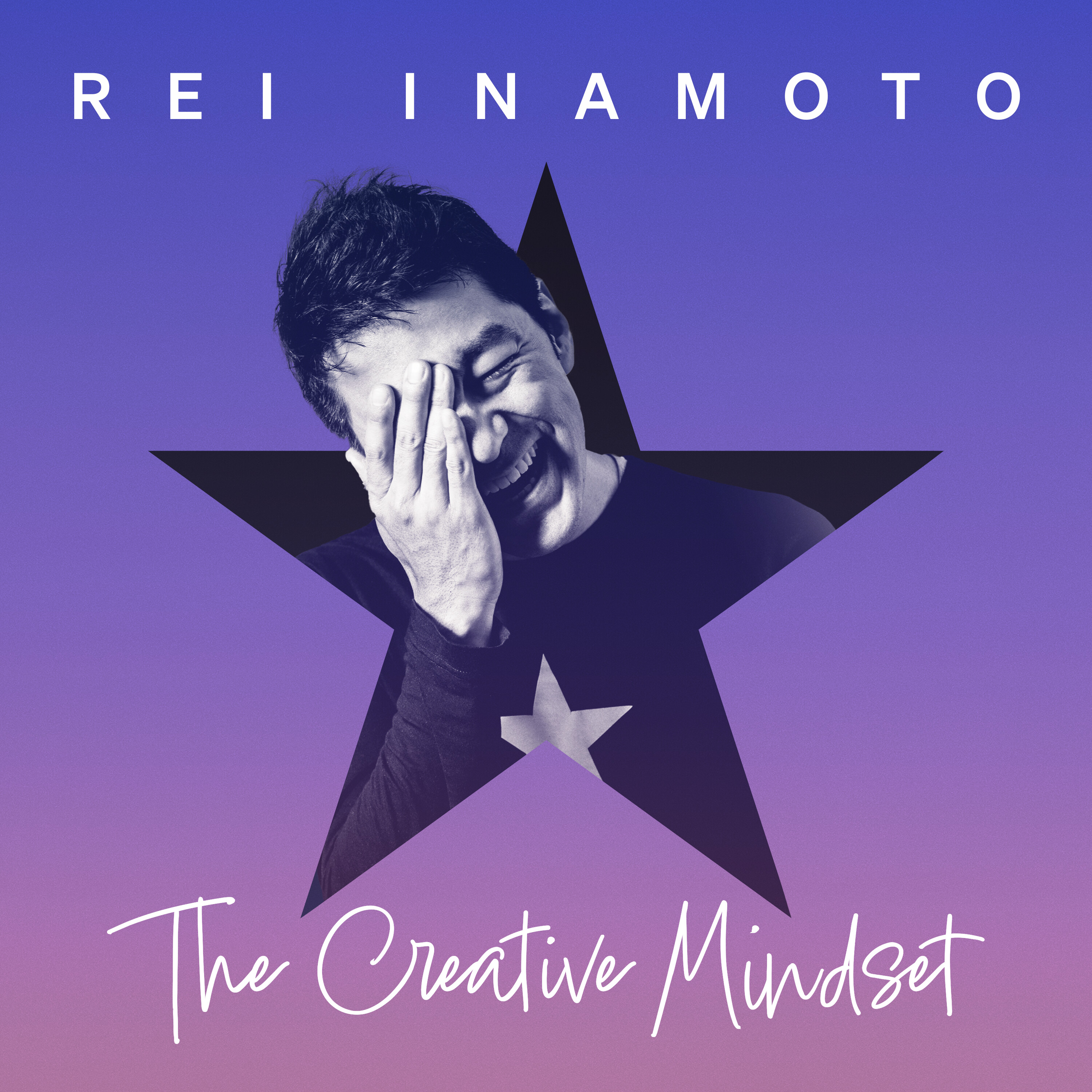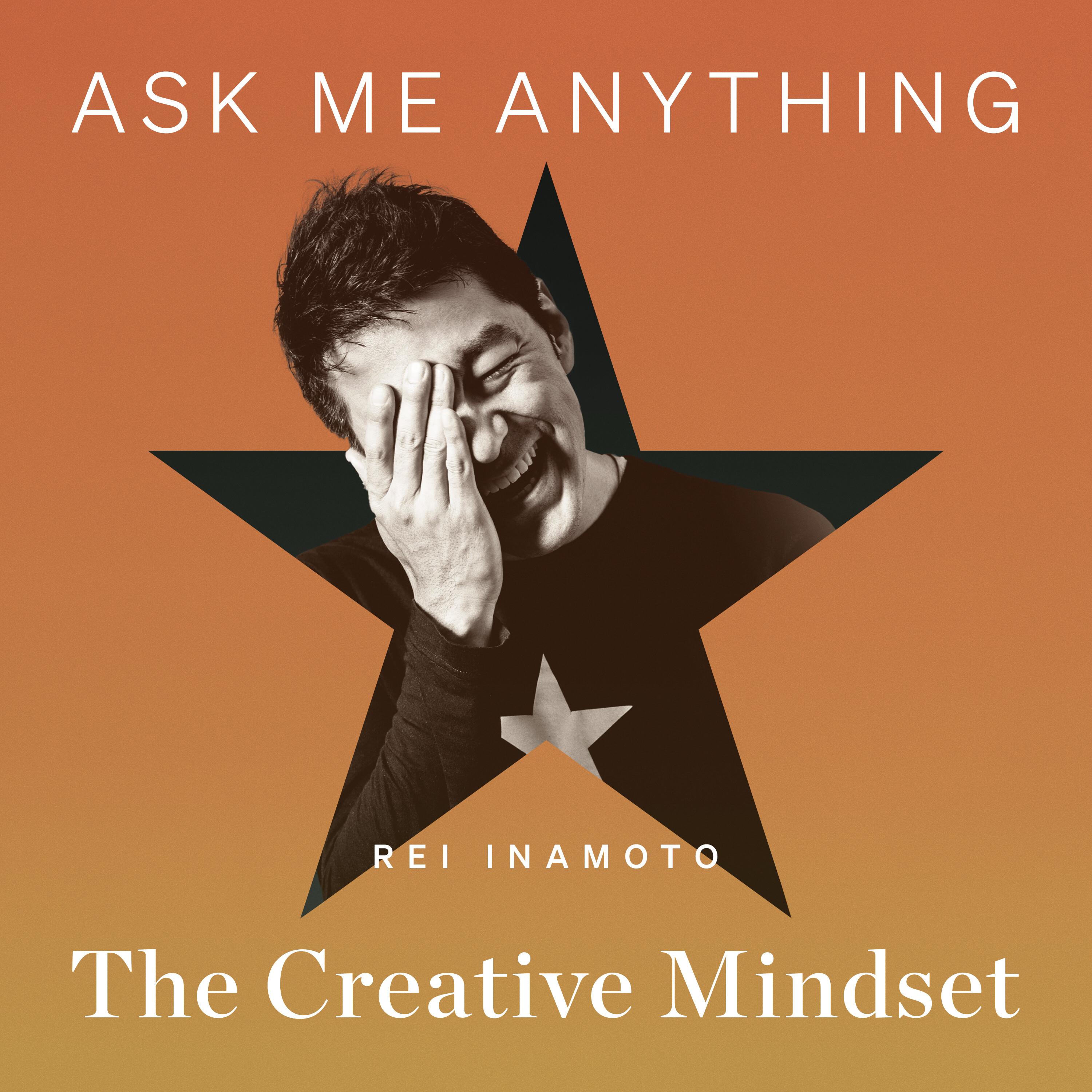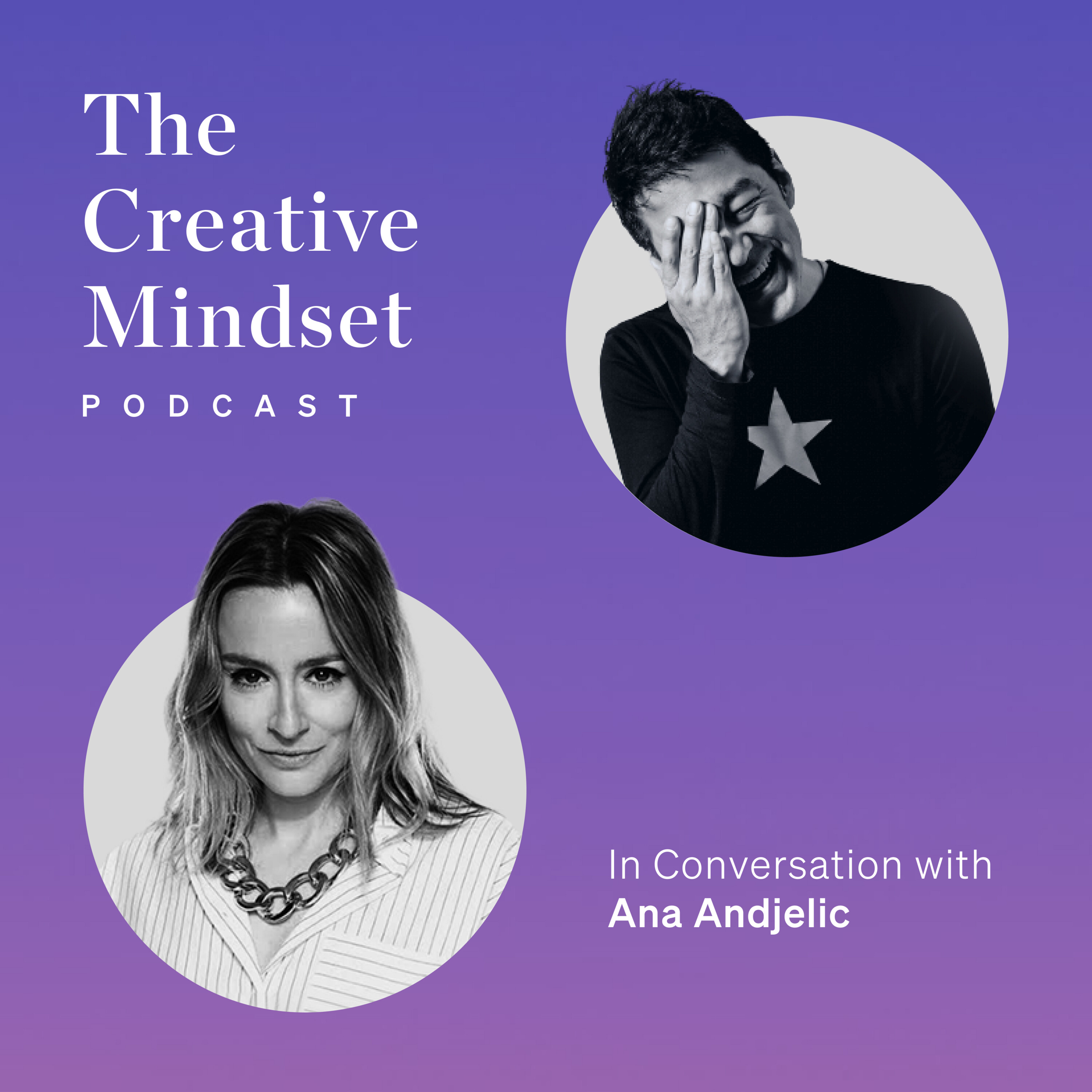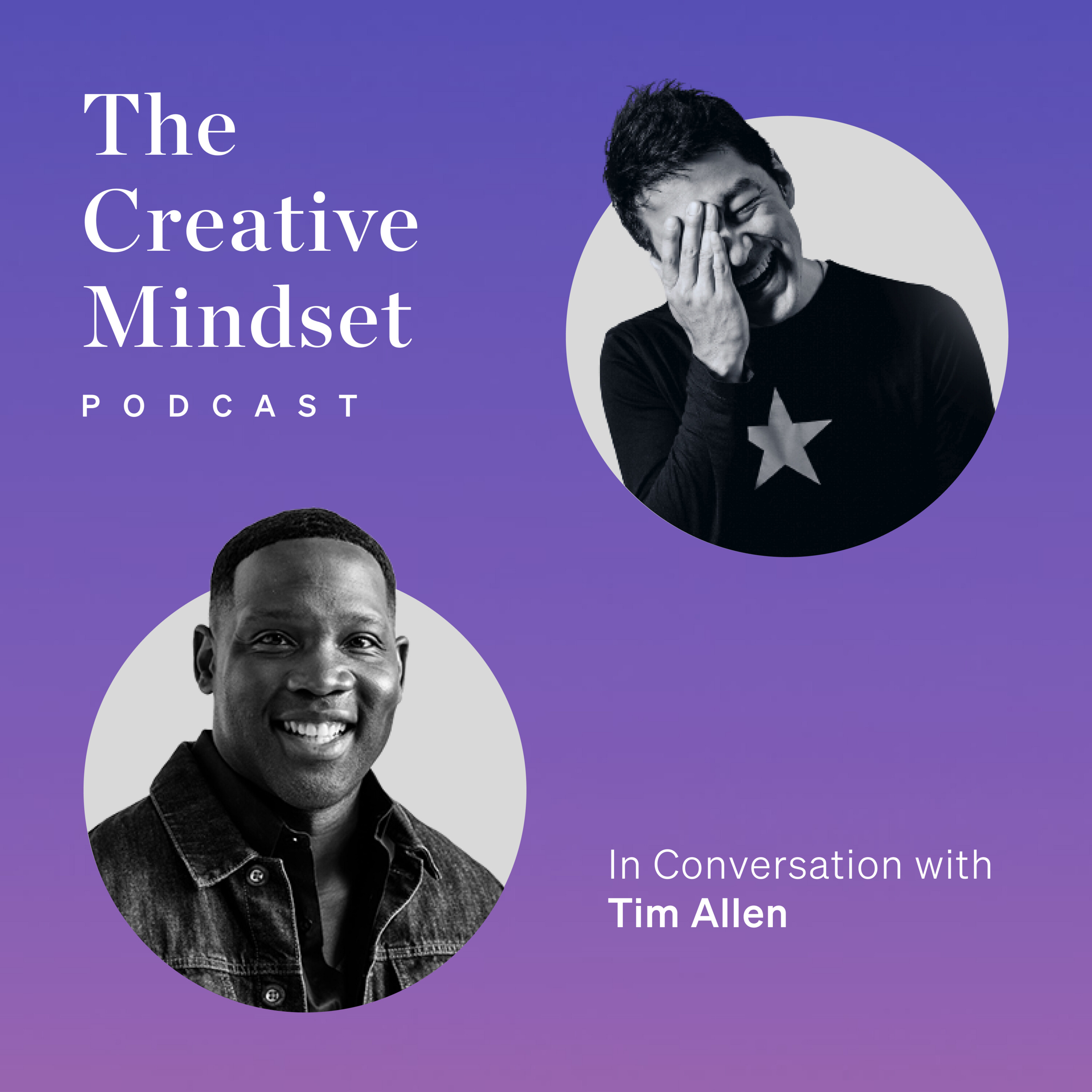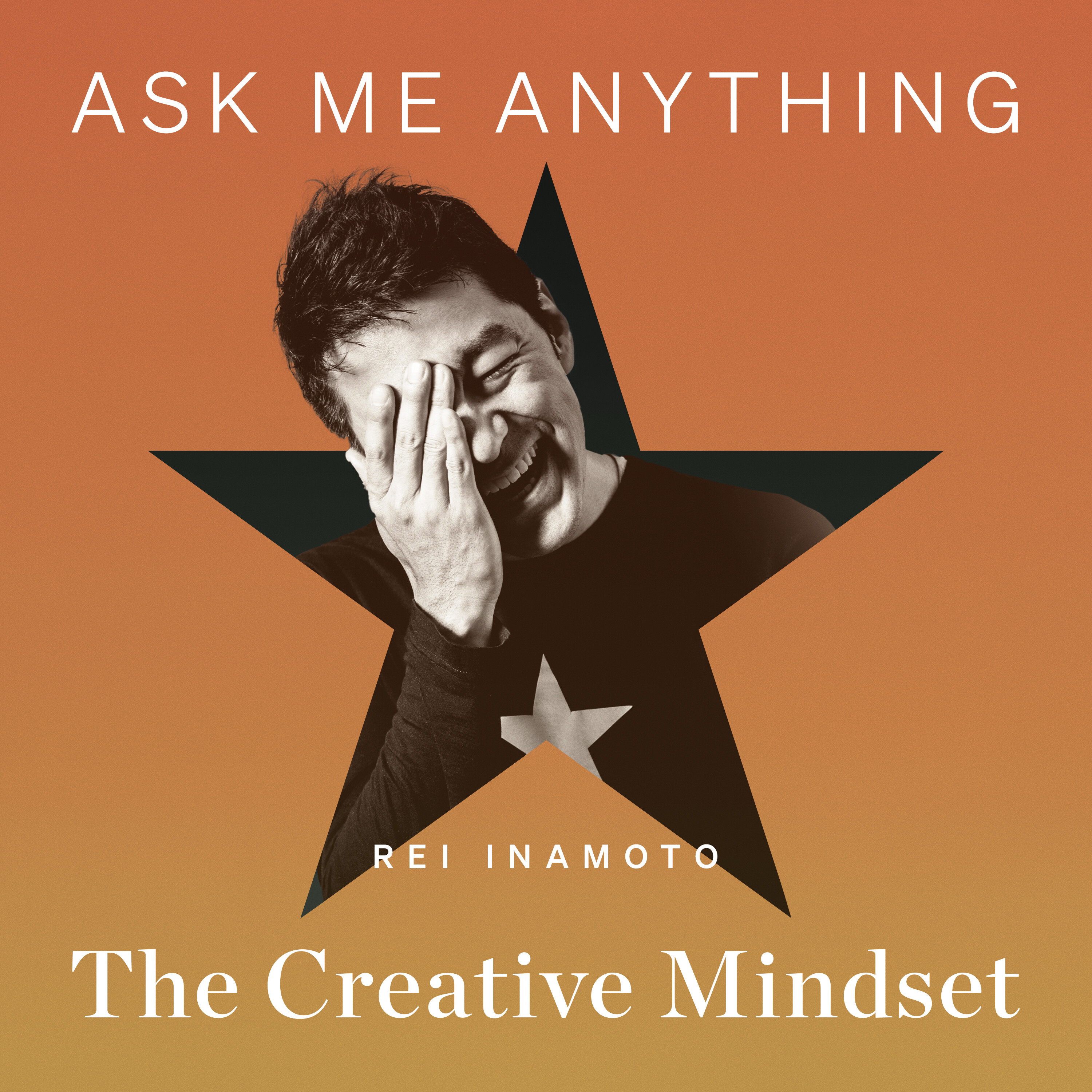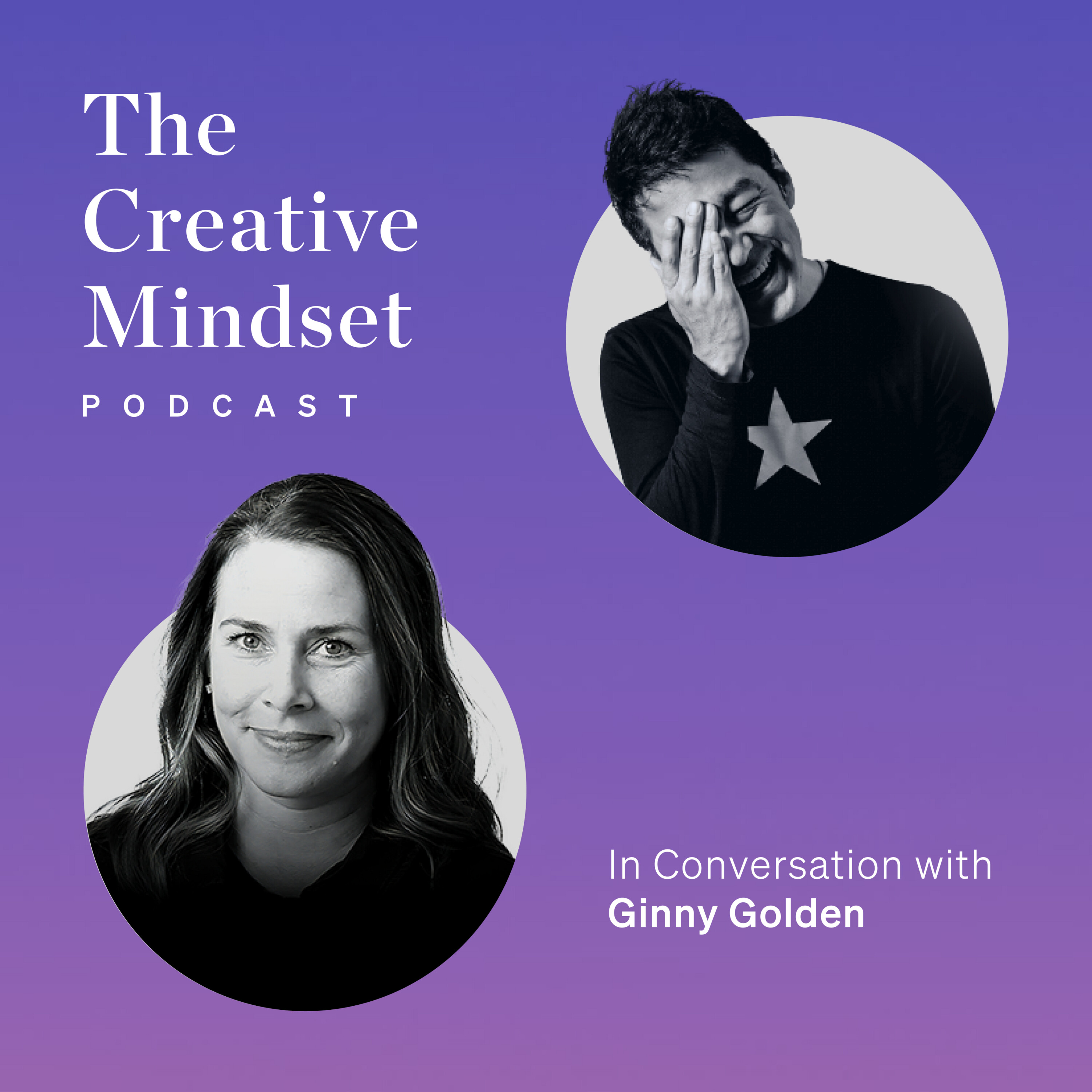Yeah, what are the top say three skills that you think today's marketing in 2023 and beyond
should have? Top three. I would start with being incredibly curious. Incredibly curious,
the world of marketing is changing at such a rapid clip. The trends and tactics that were
the mainstay of your plan last year are no longer relevant. The thing that actually keeps me excited
about being a marketer is the fact that there's so much to be learned, not only in our industry,
but from cultures, call it sports, art, you name it. Looking outside of your world
actually helps you approach your job very differently. So, that curiosity, that desire
to continuously learn is, I would say, the most important skill that you need to go into being
a marketer with. The second is probably having the ability to balance art and science. You know,
back in the day when marketing and advertising really emerged, it was seen as this emotive
storytelling platform where you were just sort of trying to win the hearts, minds, and wallets of
your consumers through really compelling storytelling. And then we entered into this
era of big data and suddenly this pendulum swung and it almost created this tension between, well,
are you a brand marketer or are you a growth marketer? And I think that what was lost in all
of that was that the best marketing is a combination of the two. And you might excel in one or the other,
but you can't negate one or the other or you're only half of a good marketer.
And so, I personally, on the one hand, as somebody who would describe myself as more of a true brand
builder at heart with a very sound digital backbone, I'm so happy to see that some of
the privacy changes that have come about recently have put the emphasis back on the power and
importance of great storytelling, first and foremost, because I think it was starting to
become a little bit of a lost art. Equally, I'm so excited as a marketer that I have access to all
of this incredibly valuable consumer data that helps me and my teams pull out actionable insights
from which to build the rich storytelling. So, you have to embrace both. It doesn't mean you have to
be an expert in both, but you have to understand the relationship and be able to speak enough of
the language to bring those two things together. And then I would say the third for marketers in
particular is just being so collaborative, you know, collaborative to your core. Marketing sits
at the intersection of a lot of different parts of the organization. You need to have a really
close relationship with your product team, with your finance team, with your data and analytics
team, et cetera, et cetera. And knowing how to be a good team player, knowing how to understand
other people's, you know, goals and figure out a way to support their goals while keeping the
consumer at the center of every decision you make. That is an art unto itself, but I think the
most successful marketers are those who understand the importance of that collaboration in order to
be effective in their roles. That's a great list, by the way, that curiosity, balance of art and
science and collaborative to the core. I love the way you articulate it. And I've heard different
versions of this, but I don't think I've heard them articulated in simple ways and together.
So, I'll keep that in my mind as well. Well, Ray, I am a marketer. I'm a storyteller.
Exactly, exactly. As an individual, what was the most challenging and the most fulfilling
job that, and job, I don't mean like a position, but, you know, specific thing that you've done
as an individual? Well, definitely building a brand from the ground up was, you know, very
challenging and a highlight as well. But I think we've talked plenty about that. So, the one that
genuinely still to this day in my career sits on the shelf as perhaps the most complicated
project I've ever been a part of, but also the most rewarding was one that happened when we
were at AKQA together, which you might be very familiar with, which is The Lost Ring, which we
did for our client McDonald's back in 2007, 2008. So, I'm definitely going back into the archives,
but I'll tell you again, for as many things as I've gone on to do since then, the amount of
complexity associated with that single project, as well as the amount of innovation that was
baked into a single project is still, you know, I think unparalleled in terms of other things that
I've tackled. And PJ, who you just had on recently was very instrumental in that. And, you know,
just to give the listeners a very clear sense of what we were dealing with, it was, I was the
senior account director at the time. It was for the McDonald's global organization and in support
of their Olympic sponsorship for the 2008 Games in Beijing. And we, the brief was amazing. The
brief was basically, how can you help us unite young adults worldwide using our Olympic
sponsorship as the conduit? And, you know, PJ being the crazy storyteller and visionary that he is,
was very instrumental in the concept that they ultimately chose, which, again, as the account
person, I was like, okay, we'll take it in. But this is pretty crazy. This is pretty crazy. And the
concept was pitching them on this idea of an alternate reality game that would be played over
the span of four months in real time, you know, online and in the real world. And the narrative
arc was that there once was a sixth ring as part of the Olympics logo. And this ring mysteriously
disappeared. And we were going to conduct this game with young adults all over the globe to help
us discover what happened to it and why. And it was just so wild. It was so out there. And they bought
it. And, you know, it was the one project I worked on for 20 months, a single project. It was 20
months from concept to execution, which did culminate at the Games in Beijing. And I did get
to go. So that was amazing. And there were so many firsts. There were so many unknowns. We've worked
with this world-renowned game designer, Jane McGonigal, on it. This was very early in the world
of social. Like, we used Twitter as one of our primary platforms for communication. I think
Twitter had been around for 12 months at the time. We convinced McDonald's to kick this project off
unbranded. So we're convincing them to spend many millions of dollars on an initiative that
we're saying, but we're not going to let anybody know that your brand is behind it to start,
which, again, just so much trust that they gave us that that was the right thing to do.
But it resulted in Fast Company coining the term dark marketing after our program and the fact that
we started in an unbranded way and slowly revealed. And that just created so much more brand love and
support of the initiative. And it was phenomenal. I mean, it was so challenging to deal. I say it was
the most complex because I had the good fortune of working with the McDonald's Global Organization,
the IOC, and the Chinese government all in one go. So talk about learning the art of
contingency planning. I mean, we had plan A, B, C, D, and E for that project. But it was so fun.
It was just the energy of the unknown and trying new things. And I feel like I personally developed
so many skills through that, and a willingness to just try new things. And it was fun. You know,
I think everybody who was a part of it had their moment of like, I got to get off this train.
But at the end of the day, you felt like, wow, we're doing something really revolutionary here.
And we're doing it. This is not about promoting the food. This is about using the brand's voice
and strength to create an experience for these young adults that's unparalleled. And that
celebrates what the games are all about in the first place, which is bringing the world together.
So yeah, I would say still, I probably have a scar or two from that one, but it was worth it.
I hadn't heard of that story in a long, I mean, I was there. I didn't work on the project directly.
You know, I was sitting next to him, like quite literally next to him and seeing day in, day out,
week in, week out, and month in, month out, as you said, you know, 20 months. Yeah. So I remember
fondly of that time and the kind of things that we were trying back then. And it was in the nascent
days of social media, way before Instagram, way, way before TikTok. So yeah. And yeah, you don't
see that kind of marketing as much as we used to nowadays, do we? No. Like, it seems like people
are looking for much more quick things, quick hits and, you know, TikToks that go viral, Instagram
reels that go viral, and you just move on to the next thing and next thing and just looking for
that next quick hit, feels like. Totally. That would be a way harder sell today. That's for sure.
Oh yeah. Yeah. It probably wouldn't fly. It wouldn't fly. Yeah. Well, I guess off the back of that story,
that was, you know, 15 years ago, almost. You've probably earned a few more scars and a few more
medals since, well, a lot more medals since then. But when you are going into, and when you are in
the midst of really challenging situation, what are the things that you're keeping in your mind?
It might be easier to say now that you've gone through different phases of your professional
life and personal life. So what are the things that you keep in mind to get through those tough times?
Yeah. If I could have a conversation with my younger self, right? Some of this advice would
have been really helpful. So it's funny, actually, there was an article that was recently circulating
with some folks that I work with that was just talking about what it takes to be really effective
amidst the ever-changing landscape that we work in today. And one of the things in particular
talked about being like water. And I think it might actually come from a Bruce Lee quote,
if I'm not mistaken, but it really resonated with me. The whole concept was around water is always
water. It doesn't change necessarily. It's true to who it is, but it also finds its way around
obstacles. And there was just something really beautiful about that analogy that made so much
sense to me and how I've still applied and how I'm approaching my work and life at large right now.
And I think that one, just this mantra of be like water. Don't change who you are, but adapt to your
surroundings. I think that's a really, really important lesson. Yeah, it's a famous black and
white, I believe, clip of an interview of Bruce Lee, how water can be devastating when it's
going down to a big stream or just dripping onto a rock and making a dent over many, many
years kind of thing. So it's a very beautiful prose that he recites. Yeah. Yeah. I think it's
a really powerful idea for sure, because like we talked about, you know, this world that we're
living in is ever-changing and just knowing who you are, but then being able to equally be
adaptable, I think is just so critical, especially in the face of challenge. You know this about me,
right, but I grew up playing competitive sports and I am such a big fan of team sports and all
of the lessons I took from that in my childhood into my adult life and career. And so I think
another one is like, don't go it alone. It's easy to think about, you know, your own little world
and the challenges that you're facing. And I think it's important to stop and remember,
marketing is a team sport and you have a network of people around you. And I've heard people say
to me, oh, you know, you should, as I got a little bit further along in my career, like, who's your
personal board of directors? And at first I thought that sounds so formal, but then I started to
understand, yeah, surround yourself with the people who are going to really create that, you know,
foundation of support and being able to bounce ideas off of and being vulnerable with. And,
you know, we all have fears and voices in our heads and those types of things, but
I think those voices get louder when you think you have to do it all on your own and the world
rests on your shoulders. And so that's my second one is just don't go it alone. Marketing is a team
sport. I like the idea of having a personal, personal board of directors. I hadn't heard that
before, but yeah. Yeah. Yeah. Yeah. It's, it's a good one. And, and then lastly, and this is maybe
something I've embraced in the last couple of years of my life, which is the power of breath.
Just breathe. I started doing meditation a couple of years ago and I never realized how much control
I could have over my mind and my body by controlling my breath. And one of the techniques
that I've adopted from that, that I've shared with other people, and it really works is, is
there's a type of breathing called a box breath where you breathe in for four, you hold for four,
you breathe out for four, you hold for four. And you just kind of like, you know, you can even trace
it with your fingers. Just doing a series of the box breaths can like bring you back to center and
remind you like, and it's going to be okay. We're, we're just marketers, you know, like it's, it's
important, but it's not that important. And I feel like being able to have a tool that gives you
presence of mind and ability to put things into perspective because, you know, I have had some
very high intensity roles and I've worked for some very ambitious companies and that can get
overwhelming and to learn the power of your own breath to bring you back to a place of calm
is something I wished I had learned earlier in my career, quite honestly,
but it's definitely served me well in the last few years of my life.
Those were some philosophical as well as very practical pieces of advice that I can use myself
as well. So thank you for, thanks for sharing them. Do you think about your next chapter?
How do you deal with it? Yes, I do. And I think that like the other people that you speak to,
it's one of those things that I'm constantly asking myself, you know, is this the right
thing? What's next? What should I be doing? What kind of brand should I be working on? Should I
be working for myself, you know, et cetera, et cetera. And so I left Allbirds, well back to the
midlife crisis, Allbirds comment, you know, my, my peer group thought I was having a midlife crisis
because that was so outside of the norm for me going to this nascent, not even established
company relative to what I'd done. For me, as we talked about last time, it was rounding out
a new skillset that I, an experience I hadn't embarked on before and mission accomplished.
And so I guess the way I would answer your question now is I think about it all the time.
I'm two and a half years into doing my own thing. And in that two and a half years, I've,
you know, taught an online education course around brand building and partnership with
section four, something I never thought I would do and was terrifying, but hey, I did it. I have
worked with a number of different brands in a fractional CMO capacity. I've a handful of advisory
roles, and I still talk to recruiters and entertain opportunities for full-time CMOs. If the
full-time CMO role, if the right thing came along, like I think where I am at this stage of my life
and career is that I'm a continuous learner. And I like to push myself out of my comfort zone
and try new things. And that's what this last two and a half years has been for me.
I think what I've learned in now being, you know, in this industry for, dare I say, 25 years,
even though I only look 25 years old, right, Ray, is that looking back, like my career has
kind of been consistently different. You know, I've worked in so many different industries,
stages, you know, agency side, brand side, et cetera, that the red thread is trying new things.
And so for me, while I constantly ask myself, should I be doing this? You know, is the grass
greener over there? At the end of the day, I come back to a place of feeling a sense of comfort
in knowing that what I'm doing right now is new for me. It's challenging me in a new way,
and it's building a new set of skills, and I'm building my network in a different way.
And this is a really important point. And I have found a way to do all of that while still having
found a way to balance other parts of my life that are really important to me on a personal level
that have been neglected at different parts of my career. And, you know, I talked last time about,
I have two children. I'm coaching my daughter's soccer team, which is something that I would
never have had the time to do. And it's important and meaningful to me. And so, yeah, and this
period of my life, you know, is affording me the opportunity to do that. And so I just think
for people who are going through those questions in their own minds and thinking about,
am I doing the right thing? Or, you know, the shoulda, woulda, couldas, just getting comfortable
with the fact that whatever you're doing right now is totally fine, because it doesn't define
where you have the opportunity to go in the future at all. Well, I mean, the fact that you're coaching
your daughter's soccer team, and having played a soccer game with you, I know how amazing you
would be as a coach, and how driven you would be as a coach, having played and getting my ass kicked.
I still remember that. I still remember the moves that you had on the pitch. I still remember.
Yes. That's amazing. They're only 10. I have to go easy on them.
Yeah, I guess so. I mean, the level that you used to play is amazing.
That was part two of my conversation with Julie Channing, a marketing leader with a track record
of building world-class brands such as Levi's, Nest, and Ober's. So here are my three key takeaways
from my chat. Key takeaway number one, be water, my friend, which was a quote from Bruce Lee.
Key takeaway number two, don't go it alone. And key takeaway number three, have a personal board
of directors. The first point, be water, my friend, as I mentioned, it's a quote from Bruce Lee,
be adaptable, be kind when you need to, and be strong when you want to. Number two, don't go
it alone. This, when I heard from Julie, it reminded me of my time with Julie at AKQA.
During one of the summers, we had a company picnic and we were playing soccer outside.
And her background actually is a very competitive athlete and a soccer player. I believe when she
was in high school, she played soccer competitively on a team and her moves were so good.
I used to play soccer when I was in high school as well. And I was taken aback how skilled and
how amazing her moves were as a soccer player. And I believe if I'm not mistaken, the team that
she played in the U.S. was so good that some of the players on her team went on to play for the
national team and play at the World Cup. So that's how good she was as a soccer player when she was
in her youth. And that must have played into her professional life and not going
by herself. You know, don't go it alone was her advice. Number three, have a personal board of
